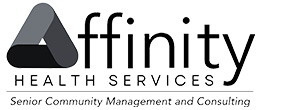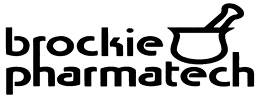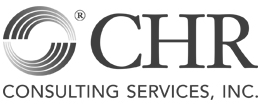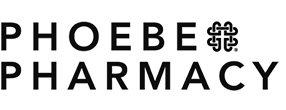2023 Conference Session Recordings
PADONA offers recordings and presentation material from our annual conference sessions. These sessions are designed to provide long-term care nurses with education and training.
2023 Conference Sessions
Purchase Conference Sessions for Education & Training
Purchase audio recordings and presentation material from our conference sessions to help train your team. Sessions are available to both PADONA members & non-members.
Once your payment has been received and membership status verified, you will receive an email with a link to download the session recordings and presentation material. For payment questions contact Candace Jones at cjones@padona.com.
PADONA is an approved provider of continuing nursing education by the Pennsylvania State Nurses Association Approver Unit, an accredited approver by the American Nurses Credentialing Center’s Commission on Accreditation. No presenters or planners have a conflict of interest relative to this webinar. Nursing contact hours cannot be awarded for completion of the audio recording. PADONA assumes no liability for the accuracy of the information provided.
Purchase Daily Conference Sessions
03/28/2023 Sessions
03/29/2023 Sessions
03/30/2023 Sessions
03/31/2023 Sessions
Purchase Individual Conference Sessions
Quality Assurance and Performance Improvement (QAPI) for Your Nursing Home: Updates, Considerations and Best Practices to Optimize Your Metrics
Presented by: Penza Imes, RN, BSN and Debra Wright, RN, BSN
The QAPI program is a method to support nursing home program improvement. The five core elements of QAPI and associated tools help support program improvement around nursing home measures and metrics. Review of actual case scenarios using the QI processes and tools to demonstrate team responsibilities and optimized participation. Audience participation and discussion is encouraged around scenarios that could benefit from the use of these processes and tools for improvement.
Infection Prevention and Performance Improvement – Mutual Symbiosis
Presented by: JoAnn Adkins, BSN, RN, CIC, LTC-CIP, FAPIC
Quality Assurance and Performance Improvement (QAPI) is a comprehensive approach to ensuring high quality care. QAPI is a systematic, comprehensive, data-driven, proactive approach to performance management and improvement. A robust infection prevention program is also a comprehensive, proactive, data driven improvement program. Resident safety and quality can be enhanced through infection prevention based on performance improvement projects. This presentation will identify the components of a QAPI program and discuss ways to incorporate infection prevention activities into QAPI. Discussion will include examples of process improvements for infection control practices.
CMS Updates on Survey and Certification
Presented by: Karen Tritz, MSW
Long term care survey processes and enforcement have undergone changes during the last few years. Enforcement guidelines have increased and require additional focus and attention from providers. From the increased focus on the infection prevention and control regulations during the pandemic and Public Health Emergency (PHE) to the implementation of the Phase three Requirements of Participation that were effective in October 2022, providers have had to adjust to how they prepare for survey and stay survey ready. CMS team members will provide updates and current status of the survey and certification process for long term care providers with an opportunity for providers to ask questions.
Let’s Talk Behavior Management
Presented by: Angela Huffman, RN,WCC, CHC
A review of the federal requirements impacting behavioral health services and requirements to provide services to attain /maintain a resident’s highest practicable psychosocial well-being. Discussion and exploration of different types of behaviors often observed in the long-term care population and seek to understand what those behaviors may mean. Review what motivates behaviors and possible causal factors for the behavior in an effort to implement meaningful and relevant non-drug and drug interventions and caregiver approaches to mitigate and minimize resident behaviors and improve outcomes.
Revisiting the Teaching Nursing Home: Implementing the Age-Friendly Nursing Home in Pennsylvania
Presented by: Nancy D. Zionts, MBA
Revisiting the Teaching Nursing Home is a two-year pilot project with ambitious goals emboldened by the ongoing COVID-19 pandemic. This initiative is occurring across three regions of Pennsylvania and aims to address the long-term care workforce shortage by introducing nursing students to geriatric nursing, better preparing the health workforce, and improving quality of care within nursing homes. The project is a renewal of the Teaching Nursing Home model that was pioneered in the 1980s, which found that creating partnerships between schools and nursing homes improved clinical outcomes within the homes, mainly by reducing hospitalizations. The current “Revisiting” initiative also includes the partnerships’ impact on the schools of nursing and nursing homes’ integration of the Institute for Health Care Improvement Age-Friendly Health System “4Ms” quality improvement framework. The 4M quality improvement framework focuses on four evidence-based elements: Mobility, Mentation, Medication, and What Matters. Currently, three schools of nursing in Pennsylvania (University of Pennsylvania, Penn State University, and the University of Pittsburgh) have partnered with four nursing homes (Wesley Main Line, Centre Care, UPMC Canterbury, and Presbyterian SeniorCare – The Willows). This presentation will share the design of the educational, quality improvement and dissemination opportunities for this model throughout Pennsylvania.
Abuse and Neglect: Case Studies and Meaningful Interventions
Presented by: Ilene Warner-Maron, PhD RN-BC CWCN CALA NHA FCPP
Utilizing case study presentations to identify issues of abuse and neglect in long-term care settings with an emphasis on the interventions to reduce incidence. Subjects will include: avoidable versus unavoidable pressure injuries; resident to resident abuse; visitor to resident suicide-homicide; sexual abuse; issues related to frailty, the miscalculation of risk assessments, human resource failures; elopements; accidents with injury. The case studies represent issues identified in malpractice litigation as well as Immediate Jeopardy actions across the country.
A Deep Dive into the Most Frequently Cited Clinical Areas
Presented by: Candace McMullen, RN, NHA, MHA, CLNC, CNDLTC and Sophie Campbell, MSN, RN, CRRN, RAC-CT, CNDLTC
The outcome of your state survey inspections is critically important to many aspects of your operations…. insurability, Five Star rating, resident and family satisfaction and confidence, employee morale, and occupancy are directly linked to your regulatory compliance. This session will examine the most frequently cited regulations, outlining the deficient practice(s) most often identified through the survey process. Outline of the high-risk areas for non-compliance that pose the greatest threat to providers in today’s environment.
Survey Enforcement Update
Presented by: Paula Sanders, Esquire
Immediate jeopardies, 6-figure CMPs, discretionary denials of payment for new admission that start before day 90, and other sanctions are now the norm rather than the exception. Bad surveys are crippling staff morale, making it increasingly more difficult to attract and retain good staff. This session will explore proactive steps you and your nursing team can take now to reduce the likelihood of adverse survey outcomes and to be better prepared to challenge them if they do occur. We will discuss the new emphasis on facility assessments, QAPI and compliance and ethics programs, and what you need to do to establish corrected past non-compliance. We will examine sample letters from CMS and DOH to learn how to interpret them, including how to figure out where you are on the
enforcement time line. Finally, we will review various ways to challenge survey findings and sanctions.
Psychotropic Stewardship
Presented by: Edward Faulkner, RN BSN, LNHA / Dr. Andrew Graf, MD / Lisa Hower, RN
Psychotropic Stewardship is the key phrase for the use and management of psychotropic medications in long term care. We’ve seen the focus on the indiscriminate use of antibiotics in healthcare, and the required improvements that have been mandated over the years. With the recent implementation of Phase 3 requirements, psychotropic management should now be at the forefront of every facility’s QAPI program. Understanding the key concepts of Behavior Management and Unnecessary Medications is critical for a dedicated program of management and reduction. This presentation will provide an overview of the regulatory requirements, and specific tips for a successful facility-based stewardship program. Barriers to management will be discussed and addressed. Dr. Pearlstein, Medical Director to several skilled facilities, will provide a perspective from a physician’s collaborative point of view, and offer tips on educating the Primary Care Physicians in Stewardship management. Lisa Hower RN DON, will provide a QAPI overview of how a targeted psychotropic reduction program in a facility can be accomplished and result in data backed reductions in falls, improved social activity involvement, and Resident well-being.
The Role of the Nurse Practitioner in Impacting SNF Quality
Presented by: Kathleen Weissberg, MS, OTD, OTR/L, CMDCP, CDP, CFPS
Nurse Practitioner’s play a variety of roles in the long-term care setting to include providing both acute and primary care to short-term and long-term care residents, staff consultation on patient issues, and education to residents, families, and staff. Research shows that use of Nurse Practitioners consistently demonstrates equivalent or better outcomes compared to physician (i.e., usual) care alone. Studies show that utilization of NPs as primary care providers result in decreased unnecessary hospitalizations, increased access to healthcare, and improved health outcomes. Nurse practitioners have successfully closed gaps in care related to provider shortages and have expanded access to care for vulnerable populations – including geriatric patients with complex chronic conditions. The benefits are clear, but the guidelines not as much. The utilization of NPs in a long-term care setting should be encouraged to improve access to care, decrease hospitalizations, and enhance quality of care. This session will provide an overview of the role of the NP in skilled nursing including scope of practice, basic requirements to meet the incident-to guidelines for Medicare payment, and how to coordinate care with attending physicians. Participants will hear from providers who have successfully implemented this model of care. Specifically, peer-supported, and evidence-based guidance will be offered regarding how to: work in partnership with physicians for quality outcomes; use evaluative services to reduce hospital readmissions; work collaboratively with nursing staff; document to support PDPM coding and therapy interventions; and impact overall resident and staff satisfaction. Participants will learn strategies to realize the value to NP services in their community.
Department of Health Update
Presented by: Susan Williamson, RN
This session will include a review and discussion of Statewide Facility and Survey statistics, including frequently cited deficiencies and frequently filed complaints. Following this session, the attendee will have an understanding of all the recent updates from The Department of Health.
Office of Long-Term Living Updates
Presented by: Jill Vovakes, MHA/INF
This session will include an update from the Office of Long-Term Living and an update of the state Quality Improvement Program. This will include an update on Medicaid as a reimbursement system for long term care. Attendees will have the opportunity to ask questions.
Have a Question?
CEO/President
Candace McMullen
(814) 617-1435
cmcmullen@padona.com
Directed in Service & Continuing Education
Sophie Campbell
(724) 601-7873
scampbell@padona.com
Membership
LuAnn White
(814) 599-3717
luann@padona.com
Free Consultation
Whether you are interested in becoming a member, exhibitor, sponsor, scholarship recipient, etc, we will answer all of your questions. Lets schedule your free consultation.
*During our programs, speakers declare any conflicts of interest and do not promote off label use or promote specific products during the webinar.
PADONA is an approved provider of continuing nursing education by the Pennsylvania State Nurses Association Approver Unit, an accredited approver by the American Nurses Credentialing Center’s Commission on Accreditation.





